Botan International was founded in August 2020 in Şırnak city, located in the South East of Turkiye/Turkey.
Its official status is Limited Company. The organization has offices in Şırnak and Diyarbakır, and carries out its projects in the Diyarbakır office.
It has 5 employees, 25 contracted authors, 15 contracted translator and 18 contracted trainers.
BotanInt is a permanent partner of RSF and all its employees have signed a contract stating that they accept all articles of RSF’s “Charter on gender equality” and “Ethics Charter”.
Until the last months of 2023, all its projects were non-profit projects. At the end of 2023, the company established its translation service and started translation work. Botan International translation service translated sites such as Hafıza Merkezi, Haklara Destek, Eşitsizlik Bülteni into Kurdish. The service makes translations between Kurmanji, Sorani, Zazaki, Arabic, Turkish and English languages.
Between 2020-2023, BotanInt completed 9 projects with European Union organizations and 2 projects with USA organizations.
BotanInt’s projects continue with the Chrest Foundation (USA) and the European Endowment for Democracy (EU).
The company has a studio and newsroom that are available to journalists and NGO’s free of charge in Diyarbakir, in SE Turkiye.
The most read Kurdish news site in Turkey, botantimes.com, and the only freelance journalist network in Turkey, Serbestgazeteci.com, are BotanInt services.
Botan International is the first and only Kurdish organization that gives Kurdish media training in the history of Turkey.
Botan International is also the only non-government media education organization located in East and Southeast of Turkey.
Botantimes.com, the most widely read Kurdish website in Turkey, and the Freelance Journalist Network with 189 registered freelancers, serbestgazeteciagi.com are the media services of Botan International.
Botan International has changed its legal status and name as Botan International Medya LTD Co. on 24.04.2022. ( Turkish Trade Registry Gazette )
BotanInt;
– Provides professional journalism practice training in Kurdish through workshops
(61 workshops and panels were held in 3 years, there are 12 planned workshops for 2024)
– Provides the necessary tools to prepare news: Newsroom, audio-video studio, internet, work desk, podcast recording system are available for free use.
(1021 video programs and 830 podcast programs have been recorded until December 2023, we anticipate that there will be an intense demand due to the local elections in 2024)
– Audio and video recording equipment is provided to communication faculty students, young journalists and directors with limited opportunities.
– Provides technical support especially to NGOs who have difficulty recording in the studio
– Provided equipment support when an earthquake hit, prepares journalists for such situations
– Provides psychological support
– Provides a network between journalists
– The workshop room/newsroom is also available for use by other institutions to organize workshops.
– It publishes reports on Kurds’ freedom of expression in Turkiye in their language and their Kurdish-language media in Turkey.
Botan International
CEO, Founder: Murat Bayram
Office manager: Yonca Sarsılmaz
Accountant: Düzen Accounting Company
Botan Times Kurdish
Editor in chief: Murat Bayram – muratbayram@botaninternational.com
Editor/reporter: Gulistan Korban Rençber – gulistankorban@botantimes.com
Editor/reporter:: Berîl Caymaz – berilcaymaz@botantimes.com
Webdeveloper: Şeyhmus Baykal
Botan Times magazine design: Ridwan Xelîl
Botan Times English
Editor/translator: Yonca Sarsılmaz yoncasarsilmaz@botantimes.com
Webdeveloper: Şeyhmus Baykal
Botan Times Weekly magazine design: Ridwan Xelîl
Botan Times / Opinion
Editor in Chief: Ekrem Yıldız
Authors:
Beril Caymaz, Canan Yalçın, Dilek Çelebi, Fatih Duman, Gülistan Korban Rençber, Înan Eroglu, Mem Artemêt, Mihemed Şarman, Nalîn Dirî, Qesîm Etmanekî, Omer Faruk Baran, Murat Bayram, Ramazan Kaya, Reha Ruhavîoglu, Rizgar Elegez, Roşan Lezgîn, Selahattin Bulut, Selamî Esen, Serdar Şengul, Şener Özmen, Şexo Fîlîk, Tevfik Bayram, Xecê Daşxin, Yehya Omerî, Yonca Sarsılmaz, Zana Farqînî
Botan Podcast
Editor in chief: Semiha Yıldız
Volunteer consultants:
Ass. prof. Zuzan Barwari, Kurdish Educational Materials expert, CEO of Global Native Services (editor of TOEFL and IQ tests)
Dr. Isabel Kaser, Gender Studies Specialist, University of Bern
Trainers
Hatice Kamer, BBC, SBS Australia
Sertaç Kayar, Reuters
Mahmut Bozarslan, AFP
Masud Mohammed, Kurdistan 24
Redur Dijle, MA
Safiye Alagaş, JinNews
Ali Duran Topuz , Arti TV
Ferid Demirel, bianet
Murat Bayram, Botan International
Şiraz Baran, lawyer
Abdurrahman Gok, MA
Dr. Isabel Kaser, gender studies expert, Bern Uni.
Muri Darida, freelance journalist
Omer Faruk Baran, VOA Kurdish
Gulistan Korban Rencber, NRT TV
Serdar Canan, Ethnomusicologist, Kurdish Diction expert
Nergiz Inal, Digital Security Specialist
Mehdi Mutlu, Waar TV
Kurdish Media Education Office and Studios/Diyarbakir:
Yenişehir neighborhood, Ali Emiri 1st Street, Nuyap Center Office, Floor: 2 No: 13 Post Code: 21100
Yenisehir/ Diyarbakir
Phone: +90 412 503 11 96
E-mail: info@botaninternational.com Twitter: @BotanInt
Şirnak office:
Yayla Mahallesi, 1st Street, Number: 1/A Postal Code: 73000
Balveren Town, Sirnak
—-
BotanInt focuses on Kurdish journalism in 23 cities located in this regions.( According to the survey of the Socio-Political Field Research Center “conducted in 16 cities in the Eastern Anatolia and Southeastern Anatolia regions of Turkey regarding the use of mother language, 68.2 percent of the 18-24 age group and over 70 percent of the people aged 65 and over speak Kurdish within their households.”
Education in Kurdish is prohibited in the Turkish education system, but organizing workshops is not. Kurds have the right to express themselves and receive information in their mother tongue. Kurdish journalists also have the right to learn about new techniques and opportunities in digital media. Botan International works for this right of the Kurds. It provides a studio and working environment, establishes a network, and provides training and guidance. There are already 200 media education programs and journalism departments in 74 universities in Turkey for Turkish language media. Since BotanInt is the only alternative for Kurdish language media, we do not have Turkish education projects. However, our trainers provide Turkish journalism training in Turkish education projects in the region for NGO’s programs.
The organization is a partner with both international journalist organizations, journalism organizations located in the west of Turkey and local organizations.
We, in partnership with Reporters Without Borders(RSF), have established a video and sound studio in Diyarbakir that it is open and free of charge to all journalists and GNO’s, we have also established a working office open to all journalists, we have provided 7 Kurdish Digital Media Workshops in a year and we published the Kurdish Digital Journalism e-Book that it is free to access.
We organized two “Rights-Based Kurdish Journalism Workshop” in Diyarbakir with the Istanbul-based right-based media education organisation, Atölye bia.
We are partners with Istanbul-based News Lab Turkey for employee training. Our two training and consultancy programs continue.
Our local partners are Amed TV, the only local Kurdish-language TV in Turkey, and the Southeastern Journalists Association (GGC), which has 250 active journalist members in 16 Southeastern provinces.
In order to achieve its objectives, Botan International provides training for Kurdish journalism, create a network between experienced and new journalists, create digital media education materials in Kurdish (video, e-book, podcast), provides a workplace, and work tools free of charge for journalists.
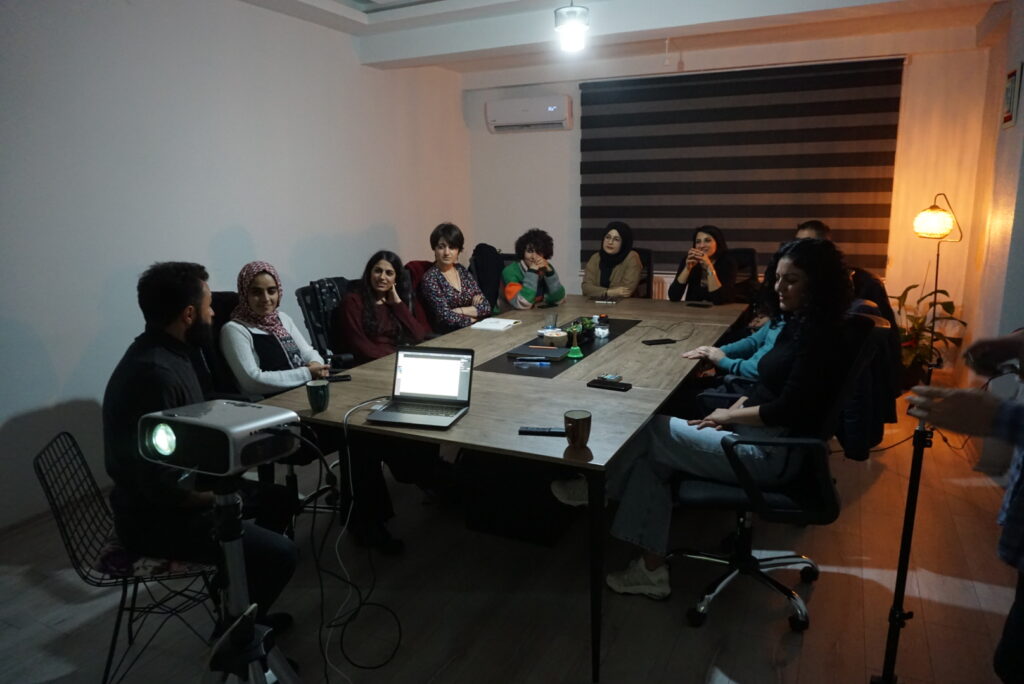
Botan International tries to provide professional support to every journalist who abides by the universal journalism principles.
“Ethics Charter”
Botan International declares that it will comply with all the articles of the “Ethics Charter” of Reporters Without Borders (RSF).
In its projects, Botan International accepts RSF’s policy as its own policy in the following categories:
BotanInt’s Independence, Governance, Journalistic Ethics, Transparency, Partnerships and efficacy, Corruption, Conflicts of interest, Gifts, Respect for the environment, Non-discrimination, Fund- raising, Work travel, Implementation of the principles, Sanctions and gender equality
Botan International declares its acceptance for Charter on gender equality owned by RSF
(adopted by RSF’s Steering Committee on 25 September 2018).
Botan International Studio in Diyarbakir
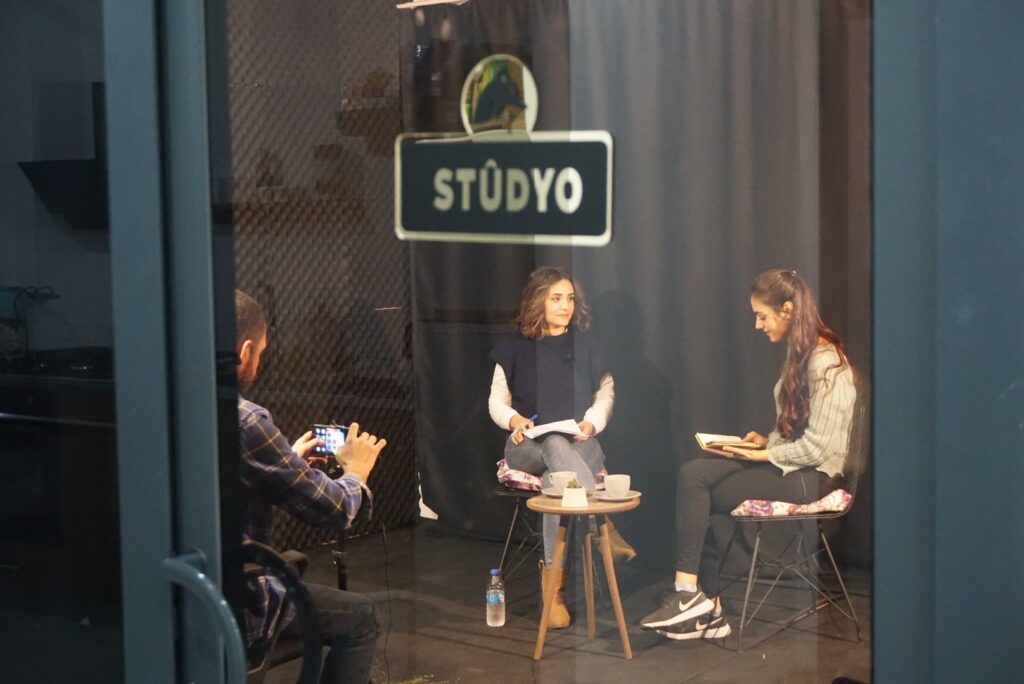
The video and audio recording studio established by Botan International in partnership with Reporters Without Borders (RSF) is free and open to all journalists and non-governmental organizations.
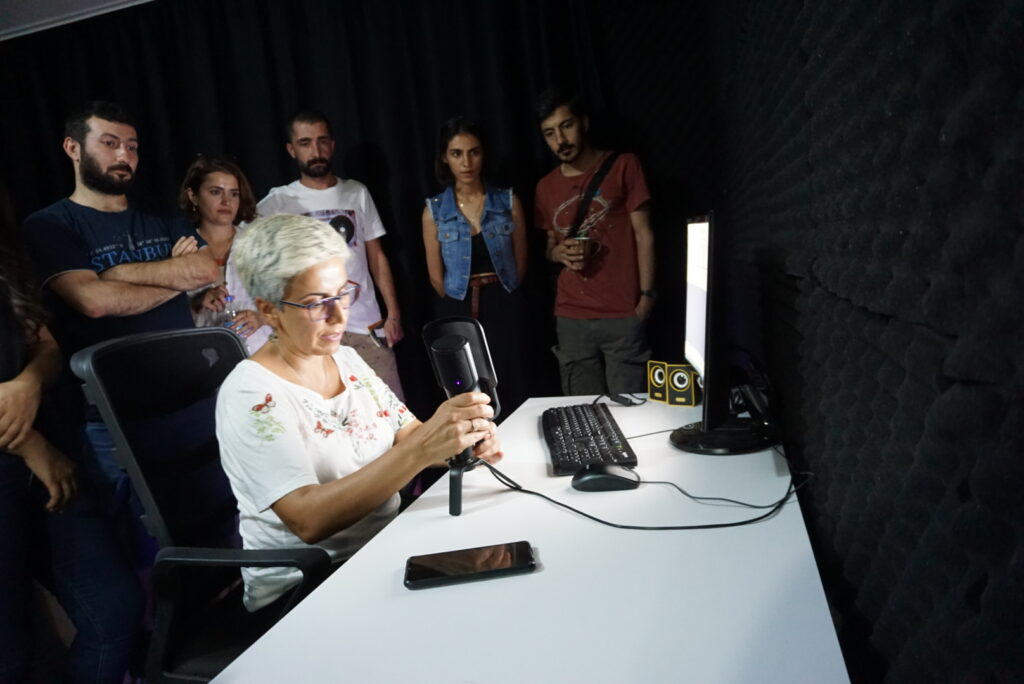
Kurdish Digital Media e-books and videos
Botan International have published the notes of trainers as e-books, access to the books is free. Our sound studio is free and open to all journalists and non-governmental organizations.
The story of our logo
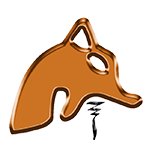
İsmail Ebuliz Cezeri (1136-1206) is the Kurdish scientist who found the first cybernetic robot in the history of science. At the same time, he made the symbol of the Botan region, the center of which is Cizre.
Cezeri’s symbol was used as a door ornament on the Grand Mosque of Cizre. That door was later dismantled and taken to Istanbul by the government. The door is currently on display at the Topkapı Museum.
The symbol represents the strength and bravery of Kurds like lions, high like eagles, and ancient like dragons.
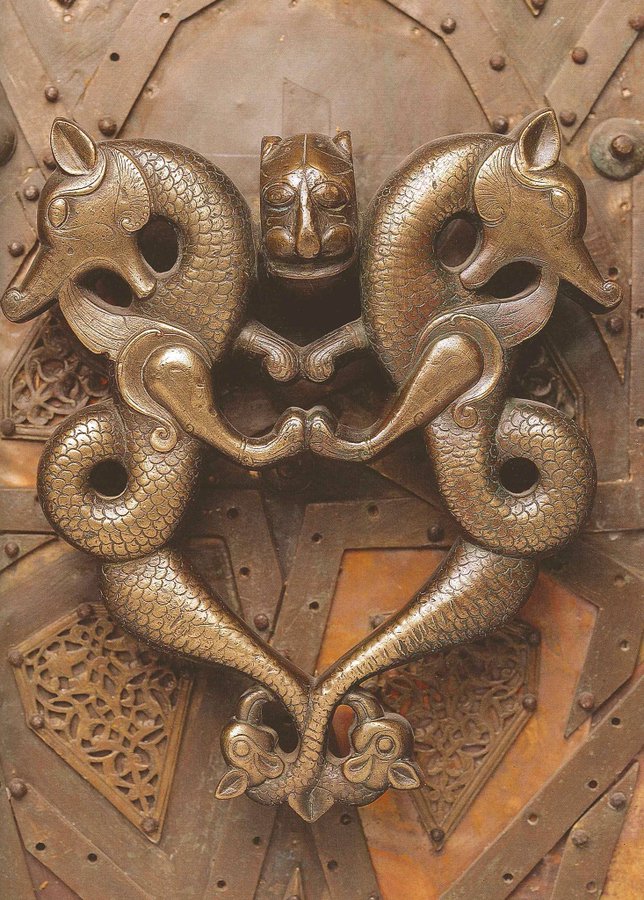
(Photo: Cizre symbol made by Cezeri)
The Prince of the Botan region, Celadet Alî Bedirxan (Jeladet Bedirkhan), published the first Kurdish/Kurmanji Latin alphabet and modern grammar structure in Hawar magazine in 1932 and Ronahî in 1942. In modern times, Kurds in Turkey and Syria use this alphabet.
The first Kurdish newspaper (Kurdistan Newspaper) was published on April 22, 1898, by Celadet’s uncle, Prince Mithat Miktad Bedirxan.
However, according to today’s international journalism standards, the Kurdistan newspaper was different but Celadet’s special news stories written in 1942 are still considered successful against today’s standards.
Caladet also translated news into Kurdish from 7 languages that he knew and published it in the magazine, Ronahî.
He used a simple signature drawn by his own hands as the logo of Hawar and Ronahî magazines.
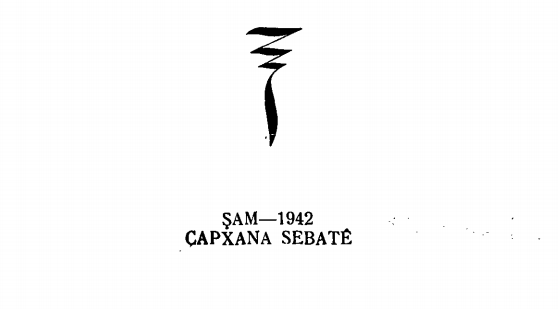
(Photo: Logo of Hawar and Ronahî magazines)
The logo drawn by Botan International founder Murat Bayram consists of the ancient dragon of İsmail Ebuliz Cezeri and the signature of Celadet Alî Bedirxan on Hawar and Ronahî.
This logo also reflects Botan International’s vision.
Celadet Alî Bedirxan’s daughter, the last Kurdish princess, Sînemxan Bedirxan is also a French-language expert and speaks 6 languages.
The princess expressed in a phone call that she is proud and is the greatest supporter of each member of Botan International.
We are working with modern and scientific principles. We are also loyal to our historical and cultural values.
(Edited by Veen Bayram)

